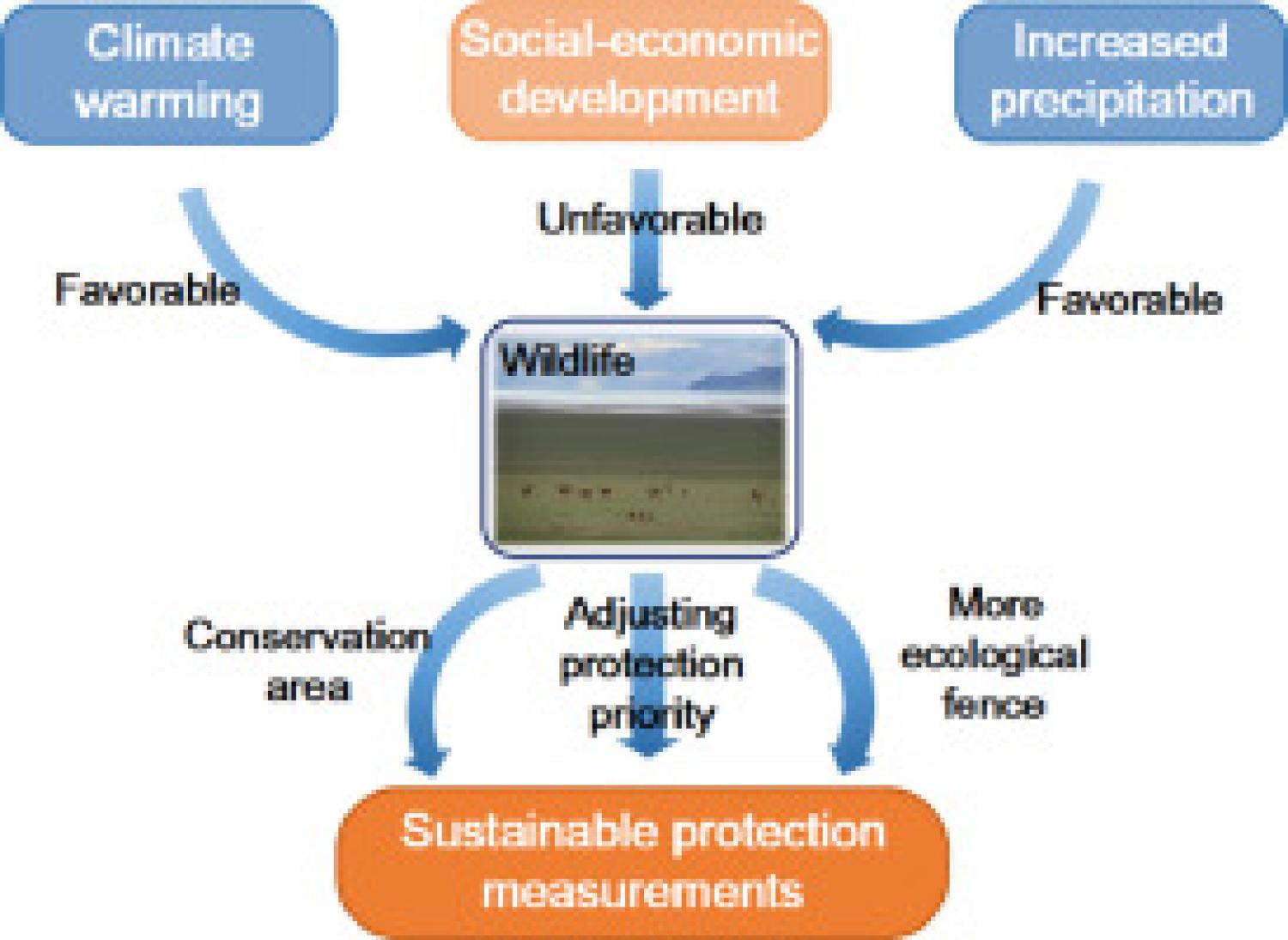
Besides its ecological services to China and even Asia, the Qingzang Plateau (QP) hosts a rich variety of wildlife species. During the last century, wildlife population decreased quickly on the QP, driven by human interventions. Recently, wildlife has witnessed rapid recovery mainly propelled by a series of wildlife conservation policies. However, some cautions merit attentions to sustain wildlife restoration and conservation on the QP. This paper casted an overview of environmental and social-economic changes on the QP affecting wildlife subsistence. Results show that QP has been warming, which can benefit wildlife recovery by easing extreme low temperature stresses. The fast growing social economy across the QP lays a solid economic foundation for investing on wildlife protection. Measures such as establishing conservation areas, constructing wildlife pathway corridors, and encouraging herdsman moving out from wildlife rich regions, have boosted wildlife recovery. However, wildlife recovery is constrained by the limited carrying capacity of the ecosystem, left by domestic livestock. Additionally, fences intended to delineate conservation areas or to separate each type of grassland use, have brought about profound side effects on wildlife through fragmentation of their habitats. It is recommended to set up the fence in a more ecological way, which can be achieved by bypassing the wildlife frequent pathway and using materials devoid of steel barb. Only considering both opportunities and problems simultaneously, can the wildlife protection on the QP be sustained.
